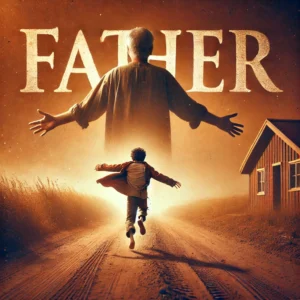Homily on Luke 15: 1-3, 11-32, Coming Home (Saturday the 22nd of March, 2025)
Praise be to Jesus Christ
We lose many things in life. Some we may get back, some we may never recover. Depending on the value of what we lost, we feel sadness and keep searching. But what happens when we lose ourselves? Today’s Gospel passage speaks about this.
In today’s Gospel, we hear of a son who lost something far more precious than material wealth that is “he lost himself.” The words that touch the heart in this passage are: “He came to himself” (He had a change of heart). Only when he reached the depths of misery did he realise what he had lost. He had a father who loved him, a home where he was safe, and everything he needed. But in his desire for freedom, he walked away. He thought life would be better elsewhere. Only when he was starving and abandoned did he come to himself.
This is not just the story of one son. It is the story of many young people today. Youth seek freedom, adventure, and excitement. They want to explore the world, follow trends, and move with the current of the time. Many young who are under formation in seminary or convents of nuns, men and women, feel the same way. The discipline of formation may seem like a restriction. The rules of the Church may feel like chains. But do we need to suffer before we come to our senses? Must we wait until we have lost everything before we realise the true value of what we had?
A teacher once asked his students why a car has brakes. Some said it is to stop the car. Others said it is to slow it down. But the teacher was not satisfied. He asked, if you knew a car had no brakes, would you enter it? No one raised their hand. Then the teacher said, brakes are not just to stop the car. They are there so we can drive fast with confidence. Without brakes, driving is dangerous.
Life is the same. Discipline, rules, and even suffering act as brakes. They help us stay on the right path. The younger son thought freedom meant doing whatever he wanted, but without the right direction, he crashed. He lost everything. Only when he came to himself he did realise that the discipline of his father’s house was not a restriction but a protection. True freedom is not in wandering but in knowing where to go.
We see this pattern throughout the Bible. Adam and Eve had everything in the Garden of Eden. God gave them one simple rule; not to eat from a particular tree. But they thought the rule was unnecessary. When they disobeyed, they lost paradise. The people of Israel were given God’s commandments, but whenever they rejected them, they suffered. The rules of God are not meant to restrict us, but to protect us.

We see a similar moment in the life of King David. When he lived in luxury, he took what was not his. But when confronted by the prophet Nathan, he came to himself and cried out to God for mercy. Job, too, had everything, yet it was only in suffering that he came to a deeper understanding of God. The Israelites, when enslaved in Egypt, cried out to God. It was then that they came to themselves and longed for the God of their fathers.
If today we feel lost, if we realise we have strayed, let us come to ourselves before suffering forces us to. If we still have our loved ones, let us cherish them now. If we are in God’s house, let us not be lost within it. The younger son lost himself far away, but the elder son was lost in his own home. Neither of them truly knew the father’s heart.
May we not be like them. May we come to ourselves while there is still time.
Let us pray: Lord, help and give us the grace to see the truth before suffering teaches us. Amen.
If you find this reflection meaningful and useful, please share it with others
God Bless









Thank you for your words of wisdom, hope and enlightenment. And above all, thanks for your tender care for our souls.
Let us try to come back to god before it could late thank you Fr the inspiration thoughts may god bless you
Very beautiful and heart touching reflection. It helps me to think deeply about my life and bring some changes into it to come more closer to God.
Thank you Father.